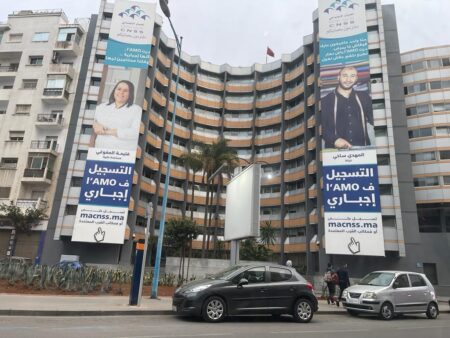From the outset, Uber used aggressive marketing and public relations, claiming – contrary to the evidence and the declarations and injunctions of the Wilaya of Casablanca – that it complied perfectly with the law. Slowly, the legal setbacks accumulated, with several countries declaring the company illegal and the European Community asserting that Uber does indeed provide a transport service (and not simply a matchmaking service) and that it must therefore comply with the legal constraints imposed on the latter.
Having been taken to court by the Wilaya of Casablanca, Uber must have felt the wind change, because the company has just declared that it is putting an end to its activities in Morocco, “for the time being” (but we’ll be back, Inch Allah).
I confess, I’m ashamed, but I had a little moment of personal self-satisfaction… I said it well, when Uber opened in Casablanca, in July 2015:
Honestly, I don’t believe in Uber’s success in Morocco.
(A self-congratulatory session that makes up for my obvious error about Ikea, which works remarkably well).
But that’s not what I wanted to talk to you about tonight, but rather that monument to bull shit communication that was the Uber press release.
Unfortunately, since our launch in Morocco nearly 3 years ago, we haven’t had any clarity on how to integrate applications like Uber into the existing transport model. […]
The current regulatory uncertainty does not allow us to provide a safe and reliable experience that meets the requirements of our customers, drivers and passengers alike. So until there is real reform and a favourable environment for new mobility solutions, we are forced to suspend our operations, starting this week.
It’s the law of the genre, but it’s extremely cheeky.
In fact, as I demonstrated in my post, there was no regulatory uncertainty. The regulations only allowed small taxis to transport people individually in the city, and regulated tourist transport so strictly that it was virtually impossible in a city like Casablanca (in particular, any transport of Moroccan customers had to be declared by name 48 hours in advance).
Uber was as clear as it could be about its “integration into the existing transport model“, but for three years didn’t want to hear these answers. “Keskidi? I haven’t understood? “when the various authorities told them “no”.
There are several ways of saying no: lodging a complaint, as the Wilaya of Casablanca did, is one. Letting the violent outbursts by taxis against Uber drivers go ahead, especially in a highly policed state like Morocco, is another. (Even though the public authorities have condemned these outbursts…)
Will Uber return to Morocco?
It is unlikely that Uber will make a comeback any time soon. Moroccan legislation generally moves at an old invalid snail’s pace, and creating a regulatory environment favourable to Uber (and its direct competitors, such as Careem) is certainly not one of the government’s priorities. Many issues are infinitely more urgent, starting with :
- the liberalisation of the dirham and its consequences
- the gradual phasing out of the Compensation Fund
- improving the tax framework, which is one of the current priorities, with computerisation, increased controls and the introduction of aid worth billions (in particular the recovery of VAT)
- education reform
- reform of the justice system
- reducing agricultural dependency
- opening up the south and poor areas (Jerada, Kenitra)
At the same time, the fate of 300 drivers who will be able to find other jobs, and whose outsourcing would mean a loss of work for taxi drivers, carries little weight. Very little.
Especially as the Moroccan government has done a great deal to improve the lot of taxis, large and small. In particular, by financing the renewal of vehicles. There are more and more new taxis in good condition.
And all the more so as the Moroccan government has no desire to tackle the fundamental problem: the grima, the taxi operating licence, which is a favour of the palace. Anyone who has a grima will rent it to a taxi driver (who can then sublet it to keep the car running 24 hours a day). In short, even more than in France, the taxi licence is an asset that cannot just be taken away.
One day, Inch Allah, Uber will come back.
But it will be interesting to see whether Careem and Uber’s other competitors also pack their bags.
 A typo or syntax error? You can select the text and hit Ctrl+Enter to send us a message. Thank you! If this post interested you, maybe you can also leave a comment. We'd love to exchange with you !
A typo or syntax error? You can select the text and hit Ctrl+Enter to send us a message. Thank you! If this post interested you, maybe you can also leave a comment. We'd love to exchange with you !




